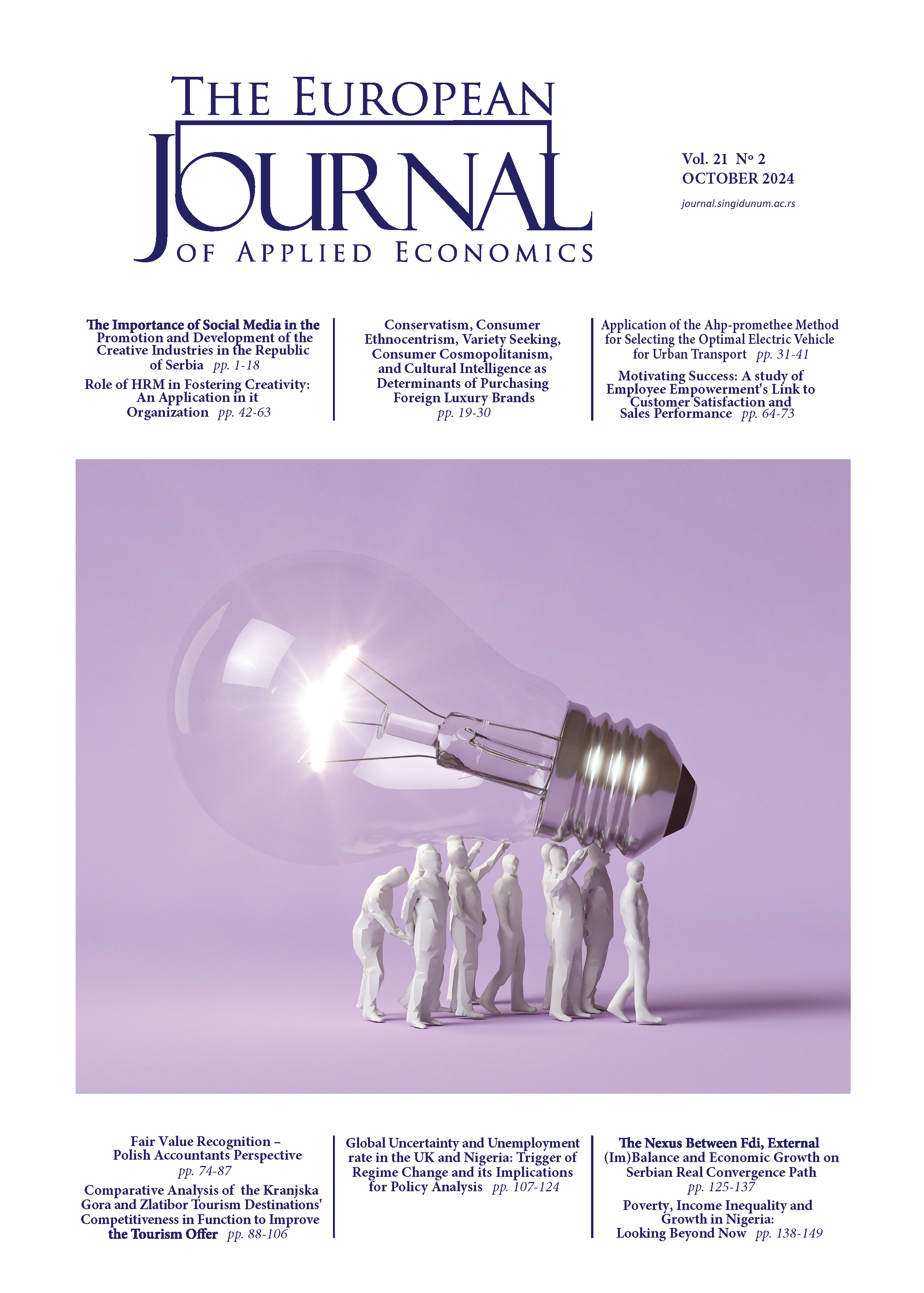MOTIVATING SUCCESS: A STUDY OF EMPLOYEE EMPOWERMENT'S LINK TO CUSTOMER SATISFACTION AND SALES PERFORMANCEance
Abstract
Empowering employees is a key factor in organisational success, as it boosts motivation and improves individual performance. The aim of this paper is to determine the link between employee empowerment and customer satisfaction as well as sales performance. Sixty (N = 60) employees of a renowned insurance company in Serbia completed two surveys. Data was collected through use of a surveys digitally-delivered to participants. The data was analyzed using SPSS 21.0. The findings of this study show a positive relationship between employee empowerment and customer satisfaction. Empowered employees demonstrate a greater sense of ownership and responsibility, leading to improved customer interactions and increased satisfaction levels. The results highlight the key role of employee empowerment in achieving customer satisfaction and sales performance. This study provides valuable insights for managers and decision-makers who want to implement effective empowerment strategies that bring positive results for both employees and the organisation as a whole.
References
2. Abuzaid, A. (2018). Employees' empowerment and its role in achieving strategic success: A practical study on Jordanian insurance companies. Jordan Journal of Business Administration, 14(4).
3. Alrubaiee, L. (2012). Exploring the relationship between ethical sales behavior, relationship quality, and customer loyalty. International Journal of Marketing Studies, 4(1), 7.
4. Antonakakis, N., & Chatziantoniou, I., & Filis, G. (2014). "Dynamic spillovers of oil price shocks and economic policy uncertainty," Energy Economics, Elsevier, 44(C), 433-447.
5. Baird, K., & Wang, H. (2010). Employee empowerment: Extent of adoption and influential factors. Personnel Review, 39(5), 574-599.
6. Bandura, A. (1989). Human agency in social cognitive theory. American Psychologist, 44(9), 1175-1184.
7. Barsoum, M. F. Moision, M., Fitz, D., Divsalar, D., & Hamkins, J. (2007) "Iterative Coded Pulse-Position-Modulation for Deep-Space Optical Communications," In A.D. Michele Effros (Eds.) IEEE Information Theory Workshop, (pp. 66-67) Tahoe City, USA, CA.


